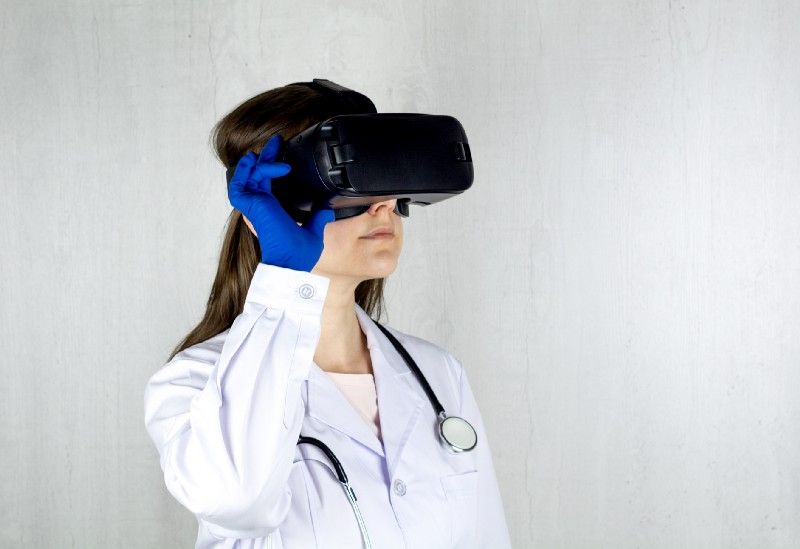Uses for Virtual Reality Other Than Gaming
When you hear Virtual Reality (VR), does your mind instantly jump to gaming? If it does, that’s perfectly normal...

Photo by Bermix Studio on Unsplash
When you hear Virtual Reality (VR), does your mind instantly jump to gaming? If it does, that’s perfectly normal — it’s probably the most publicised type of VR use in the media!
However, VR has a number of other uses, and adoption and application is increasing all of the time — in business, education and personal life. Let’s take a look at five VR uses you might not know about (apart from gaming, of course!).
Commerce
VR has been used in many areas of commerce to great success, and although technology has been being trialled in this sector for some time, like many other technologies it’s seen an uptick during the pandemic, where we’ve been unable to do or see things in-person.
From trying on clothes virtually and browsing for furniture, to virtual test drives and property tours, the applications of the technology are endless, and it’s incredibly exciting to see where it will lead.
Travel and leisure
The travel and leisure industry has benefited greatly from VR — particularly during the pandemic.
The travel industry has actually been using this technology for a while, to give customers a ‘feel’ for holiday destinations around the world — allowing them to visit different destinations in a virtual setting before making travel choices, or just allowing people to learn more about the customs and cultures of other countries.
With virtual events becoming the norm, and hybrid events looking likely while restrictions on numbers are still in place, it makes sense that the events sector has embraced VR. Again, this is an area where use is only going to increase, including for events such as theatre shows, concerts and festivals, as well as business conventions.
Healthcare
One use of VR you might not be aware of is in a therapeutic setting. This includes helping people with mental health problems such as anxiety, phobias or PTSD, by helping them experience and learn coping mechanisms for triggering events and situations in a safe, controlled environment.
The technology has been used to similar effect for individuals with neurological conditions such as autism, again helping with coping mechanisms in stressful situations, as well as building social and reasoning skills.
VR has even been used to help patients with physical disabilities, allowing them the chance to experience the thrills of previously impossible environments and activities. Headsets are even being used to help people with paralysis to ‘build back’ their brain functions, aiming to help them regain control of limbs. This is an incredibly exciting use of VR, with amazing future implications.
Medicine
VR has become popular in a medical setting, particularly in training, and this includes allowing medical students to learn and acquire work experience faster.
Using VR training, students can learn how to carry out intricate surgical procedures which are time-intensive and potentially life-threatening in the real world, in a risk-free environment that’s more conducive to learning and knowledge retention. CPR training and life support skills are another area where the training can build on critical skills, and give trainees much more confidence about using said skills in a real-life situation.
The technology has also been used in pain management for patients — from physiotherapy, to cancer treatment, and even dental work. VR can effectively distract the patient’s brain, drawing the mind away from the painful experience being endured.
Workplace Training
Finally, VR is increasingly being adopted as part of workplace training — to great success. It not only helps employees learn faster and learn smarter, it can allow for considerable time and cost savings for businesses.
From teaching critical technical skills remotely, to allowing for the practice of risky maneuvers in a safe environment, to improving team collaboration and workplace-crucial ‘soft’ skills; this is another area where VR is rapidly showing its worth.
At Dual Good Health, we bring immersive training to businesses across the globe. While our focus is Healthcare and Enterprise, our software is suitable for various sectors, including Education, Manufacturing and more.
Learn to save lives with Dual Good Health — get in touch here.
Author

Chief Technical Officer
